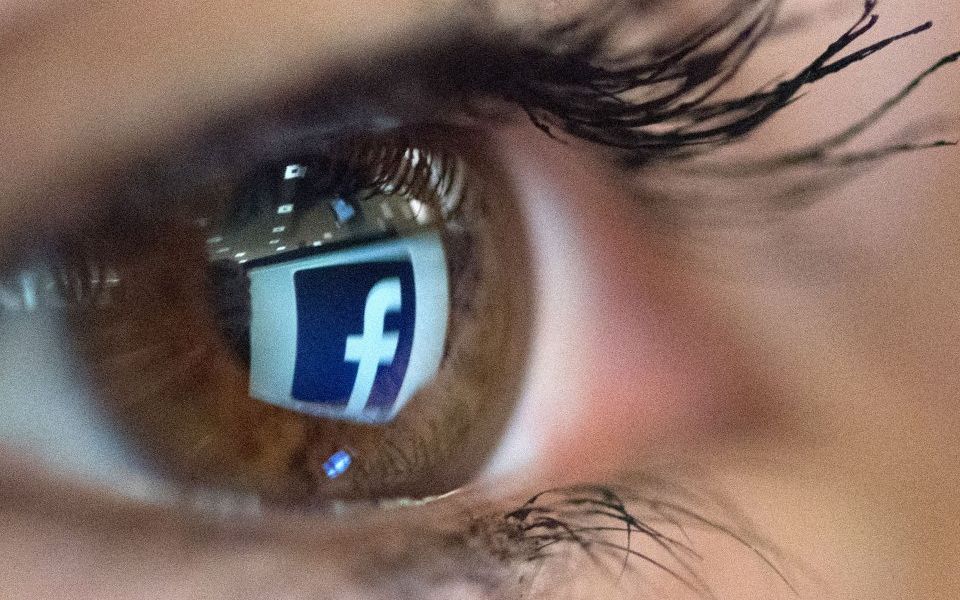The media’s greatest enemy isn’t Trump, it’s the tech titans

What is the biggest threat to the future of the media: President Donald Trump, or Silicon Valley?
In the presidential corner, Trump’s regular attacks on the “fake news media” have provoked a robust response. This summer, newspapers coordinated a string of editorials defending the essential role of the press as a lens on power and a positive force in a democratic society.
In tech news, Facebook chief executive Mark Zuckerberg was lambasted last month for reportedly commenting that he doesn’t care about publishers (you know, the ones Facebook is eating). Facebook has denied the claim, but the firm’s rampant cannibalisation of the media, large and small publishers alike, would suggest otherwise.
Read more: Trump takes aim at Google for biased 'leftwing media' search results
Of the two sides, Trump has received the biggest outcry from the press, facing accusations of censorship, fascism, and more. But big tech’s quieter danger to media is arguably far more serious.
After all, Trump’s “fake news” rally cries and tweets about the “failing New York Times” ironically continue to boost sales of traditional publications. The opposite can be said of big tech.
From advertising power to the ability to set public narratives and dodge accountability, Silicon Valley is a threat to journalism.
Facebook and Google are rapidly supplanting the press and wielding power which in many ways now transcends not just media, but governance itself, as the fumbled and inconsequential congressional questioning of Zuckerberg in April showed. Zuckerberg ran rings around America’s congressmen, who, it transpired, lacked both the technological understanding and the regulatory mechanisms to hold his firm to account.
The Google and Facebook duopoly currently controls the way we receive news. According to the Pew Research Center, 67 per cent of Americans now get at least some of their news from social media platforms, while 45 per cent cite Facebook specifically.
Facebook alone generates more ad dollars than all of America’s newspapers, while Google has twice the ad revenues of Facebook. Together, these two companies control six out of 10 new dollars spent on digital advertising.
And tech’s dominance in the news cycle is growing by the day. Facebook is launching its own news service, and Apple is rumoured to be interested in buying Conde Nast, while Amazon is also shaping up as a rapidly growing digital advertising entity. Instagram and YouTube have both launched long-form entertainment shows – will news be next?
With little regulation and business models that transcend national borders, the potential for distorting influence on public attitudes is real – and it’s getting bigger.
And it’s not just the companies – it’s tech leaders themselves. Paypal co-founder and tech heavyweight Peter Thiel has already been able to close down a media organisation he disliked (Gawker) by throwing his vast funds behind an arguably unrelated lawsuit.
Could Tesla’s Elon Musk, who is regularly in aggressive Twitter spats with individual journalists, be next? Or even Zuckerberg?
Big tech brands present themselves as the very antithesis of the US President – indeed, many have personally spoken out against Trump’s policies. But delve beyond Silicon Valley’s ukulele-accompanied promo videos, “likes”, and rainbow flags, and you’ll find a host of characters just as thin-skinned, controlling, and opaque as Trump.
Like Trump, the Silicon Valley titans appear strikingly lacking in self-awareness and rely on sloganeering just as simplistic as “make America great again” to put forth their narratives. Think of Zuckerberg’s relentless referrals to his Facebook empire as a “community”, Airbnb’s attachment to its tagline “belonging”, and the vast majority of Musk’s Twitter feed that has enabled him to become something of a cult figure.
Moreover, these companies continue to present themselves as underdogs. They promote the narrative that the now beleaguered traditional media brands remain dominant, when the current financial and cultural pressures on journalism are more real than ever – thanks primarily to the efforts of the Silicon Valley giants themselves.
Amazon chief Jeff Bezos stands distinct amid this trend, in being relatively open to the mainstream media. Not only did he buy the Washington Post in 2013, a paper which continues to win Pulitzers for its journalism, but he has also acknowledged the need for external scrutiny of Amazon.
“I say, ‘look, we are a large corporation. We deserve to be inspected. It’s going to happen. Don’t take it personally.’ Because when you take it personally, you start to do things that are counterproductive.”
Still, the fact that the world’s richest man, whose fortune is based on the relentless disruptive power of Silicon Valley, owns a national newspaper might in itself create unease.
All of which is to say that those who fear for the future of the free press are looking in the wrong place. Trump may seem to exemplify the threat of an Orwellian media landscape, but Silicon Valley has the power to make it a reality.
Read more: Media giant suffers revenue blow amid Google and Facebook changes